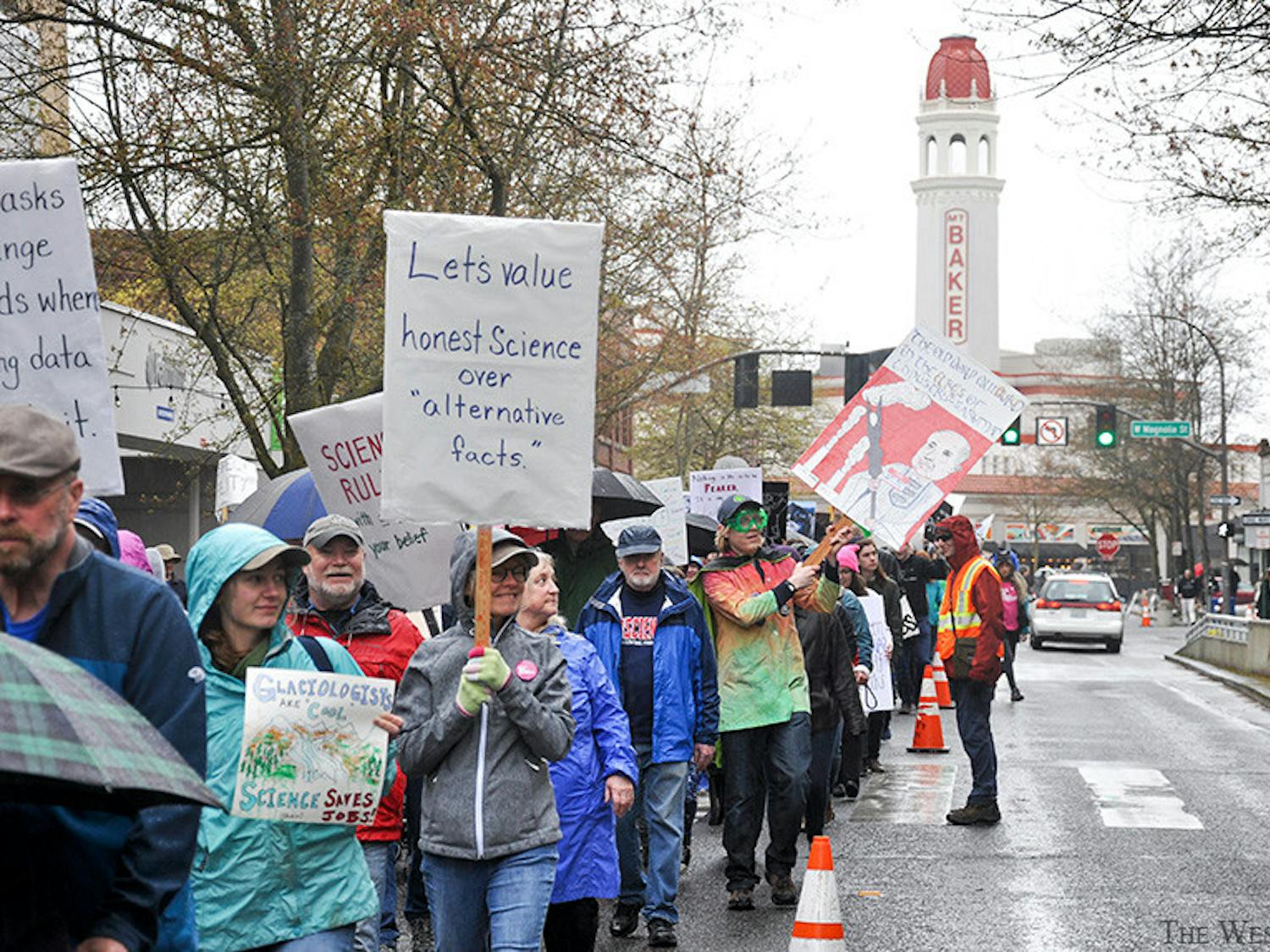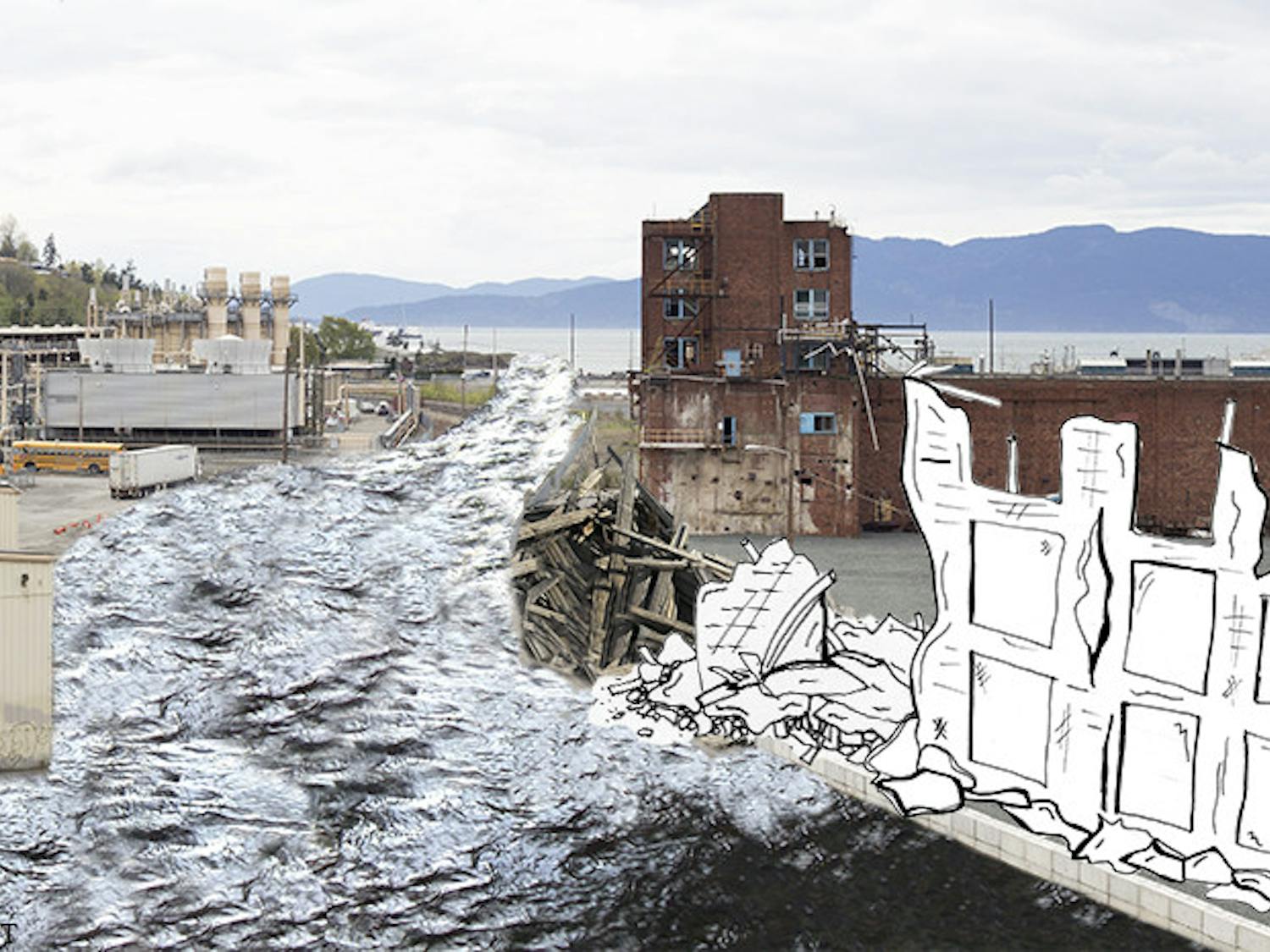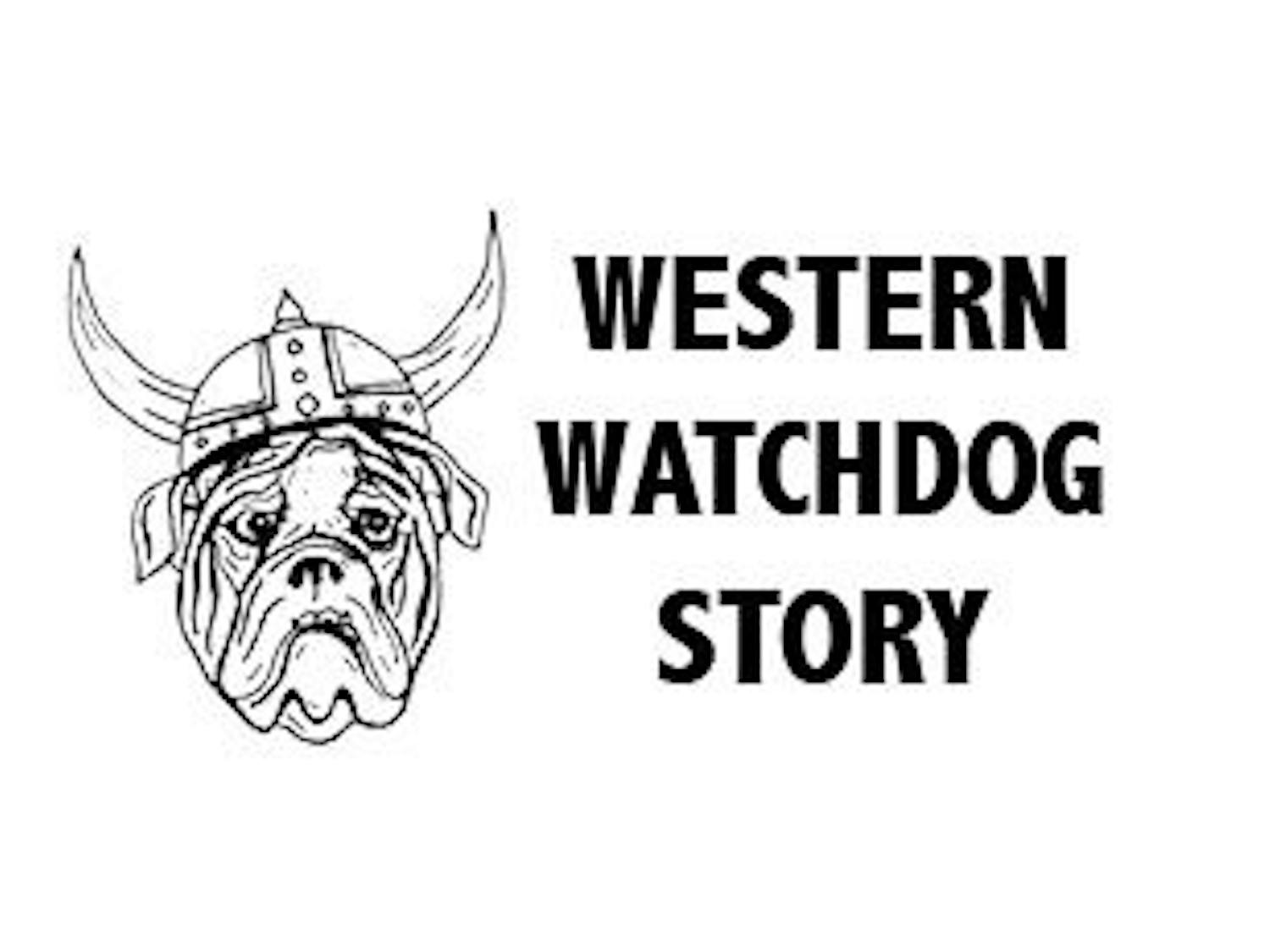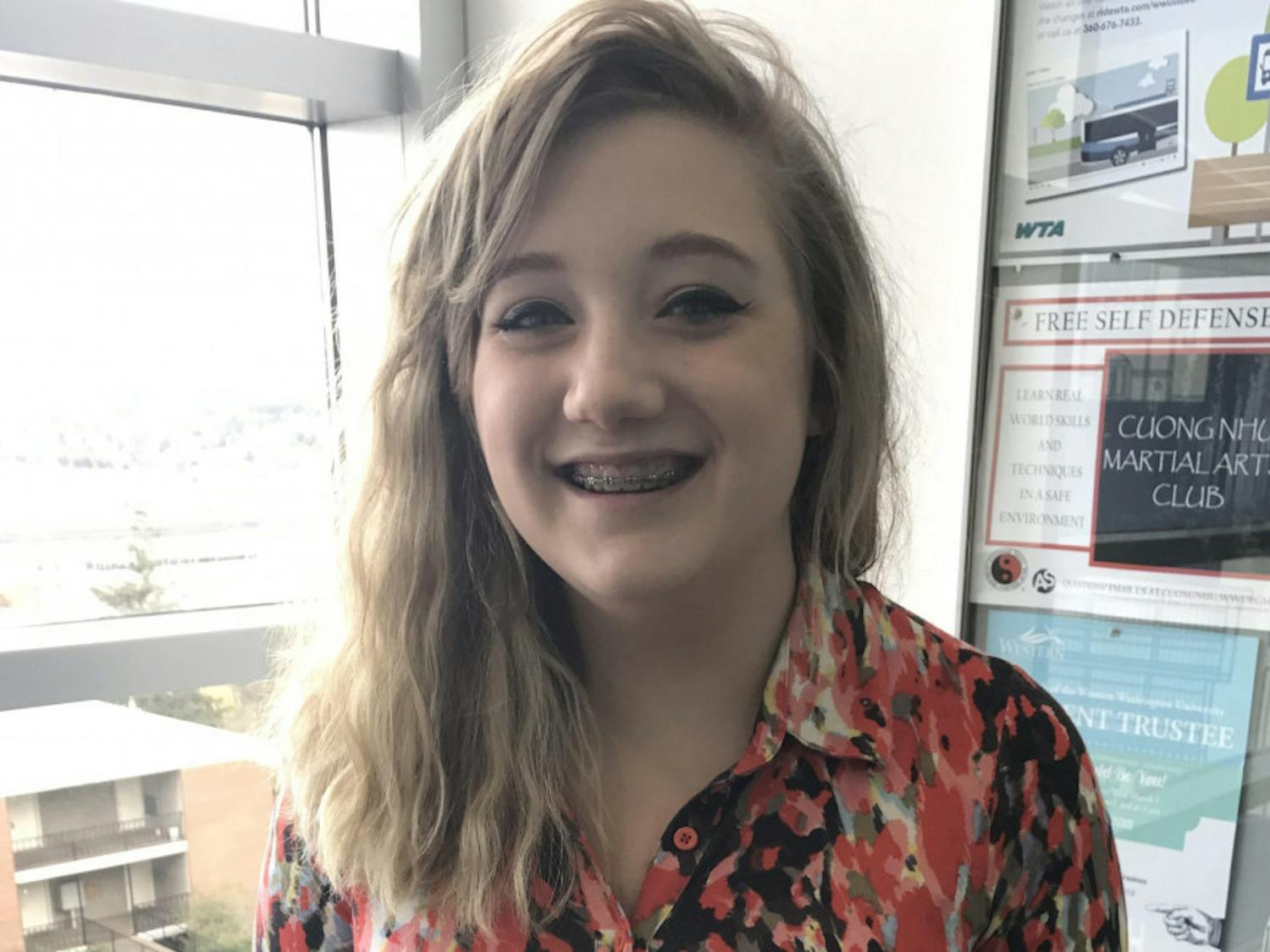News
AS urges students to go vote
By The Front | April 27The Associated Students elections kick off with a bang: a concert party at Viking Union, with anyone and everyone invited. Even as the band practiced at the stroke of 5 p.m., small groups of students were present for the dance and vote. Students got to enjoy music while they voted for their desired AS candidates. The Western Front estimates about 25 students attended the voting party. In a veil of festivities, this event could very well change the outcome of the year’s election. “I think [student government elections] are really important,” Silas Maclachlan said. He said he will be attending Western this coming fall. “Getting input from students is vital to the college’s success. If the faculty is running on its own accord without communicating with students, I feel like there’s going to be issues,” he said. Indeed, candidates have done extensive work in outreach toward the student body. Last February, AS board members held a Q&A with students about how to run for office, which AS presidential candidate Mary Moeller was a part of. Although it wasn’t tied directly to the election, this event goes to show that the AS are open and transparent in their endeavors. “I’ve actually been meeting voters this whole election cycle,” Moeller said. “I’ve visited almost thirty clubs and spoken to more than a thousand students.” Among the candidates present at the voting party were Mary Moeller and Simrun Chhabra running for president, Julianna Jackson for vice president for academic affairs, Leanna Sauerlender for vice president for governmental affairs, Marquis Mason for vice president of diversity and Annie Gordon for vice president for student life. “I think [the AS elections] are running fairly well. The advertising is great, we have the Multi-Purpose Room open, it’s good to get young people involved in government,” junior Kyle Kelley said. The night’s first musical performance, Bellingham’s The Dawn Bombs, put on a mid-century styled rock ’n’ roll sound which pounded in the chests of all those in the room. Attendees danced to the beat of the guitars while the disco ball shined an array of circle lights, spinning to their own beat. Some students who came back from dancing went to vote via laptops the AS provided. “We have done this kind of event for voter registration for local, state and federal elections,” representation and engagement programs director Henry Pollet said. “I don’t believe we’ve done this for an AS election before.” The bands played seemed to garner critical praise from all those attended. “I’m really excited to hear these bands play,” Moeller said. “I go out to house shows sometimes but I’ve never quite got the hear The Dawn Bombs in person, so I’m excited to hear them tonight.” After The Dawn Bombs, Major Treble, western’s women's a’capella ensemble came on. Then after an hour, rock group Club Mage came to give their performance. “It’s really fun to talk to people at a fun event instead of talking to them at Red Square, because it can feel like there’s a lot of pressure,” Moller said. The students attending the party were all-around pleased with the proceedings. “I like how there’s legit music, people performing, and it’s a really cool atmosphere,” Kelley said.
Panel discusses food justice for local farmworkers
By The Front | April 26When fresh produce fills our grocery stores and local markets, we rarely stop and think about the people involved in getting it there. Millions of farm workers in communities all across the country work to provide food for all of us and Western’s Students for Farmworker Justice are helping to support local farmworkers through hosting events and fundraising for different community oriented groups. Students for Farmworker Justice hosted an event featuring keynote speaker Dr. Michael Dorsey, a nationally recognized scholar in environmental protection, and three Whatcom community members involved in the fight for food justice. The panel’s discussion centered on the practices and processes in our food industry that systematically work against the farm workers who gather and produce all of the fresh fruits and vegetables that line our shelves. Dorsey lead the opening of the discussions with an introduction to the ways in which our food industry exercises discrimination towards farm workers and those who stand in solidarity with them. “To say that the food system is broken, I think, is incorrect,” Dorsey said. “What we really need to say is that the system of capitalism and racism… is functioning properly because its function is based upon exploiting labour along race and class lines. That’s not a broken system per say, that’s how it’s designed." Ramón Torres, president of Familias Unidas por La Justicia, a local union of indigenous farmworkers, spoke about his life as a local farmworker. He detailed the injustices workers are exposed to including having no access to breaks, paid sick leave, or even knowledge of what their daily wages will be. Torres, who speaks Spanish, had another panelist, Edgar Franks, translate for him as he explained what it’s like in the life of an everyday farmworker and their family. “Kids as young as 12 years old can be out working,” Torres said, “and we have to work in the rain kneeling down and muddy. And we still didn’t get breaks or lunches.” The final two panelists, Franks and Michelle Vendiola, work closely with Community to Community, a local organization that supports local and national farm workers in their fight for changes to policy regarding worker’s rights. During the panel, Franks, Torres and Vendiola contributed their personal experiences with local food production and how our food industry has affected each of their individual perspectives. “We live, unfortunately, in a world where everything is available to those that have everything and often times not enough is available to those that don’t have sufficient resources,” Dorsey said “That general phenomenon translates into the food system.” Franks, program coordinator for Community to Community, works with both local and national groups on community transformative work in the food industry. He engages with community members to get them involved in local events for farmworker justice. “It’s good to reach out to students,” Franks said, “letting them know that there is local organizing and local movements they can participate in.” Greta Merkel, president of Students for Farmworker Justice, organized the event, inviting Dorsey and Community to Community to bring information about the fight for food justice to Western’s campus. Students for Farmworker Justice began in an effort to help local farm workers unionize so they have a more effective way to negotiate with growers and corporations. “We first started to support the boycott and support the union,” Merkel said. “That’s what we’d been doing until they got the union formalized and began the negotiation process. Since then we’ve been working on fundraising mostly for community organizers.” On May 7th community members will march 18 miles from Lynden to Bellingham to show they stand in solidarity with farm workers. For more information about upcoming events in food justice and the fight for fair treatment of farmworkers, visit foodjustice.org the official website for Community to Community.
Science March demands change (after peer review)
By The Front , Questen Inghram and Angela Wissmar | April 25
RA room intruder was volunteer track coach - Updated
By The Front and Caleb Huisingh | April 25
Meet the Candidate: Courtney Manz
By The Front and Taylor Nichols | April 24Note: Universal account log in required.
Meet the Candidate: Erick Yanzon
By The Front | April 24Note: Universal account log in required.





















